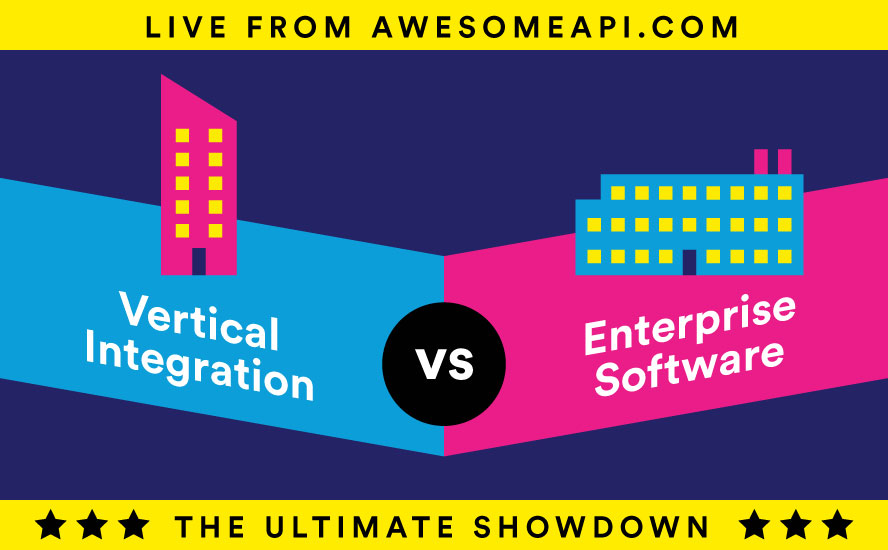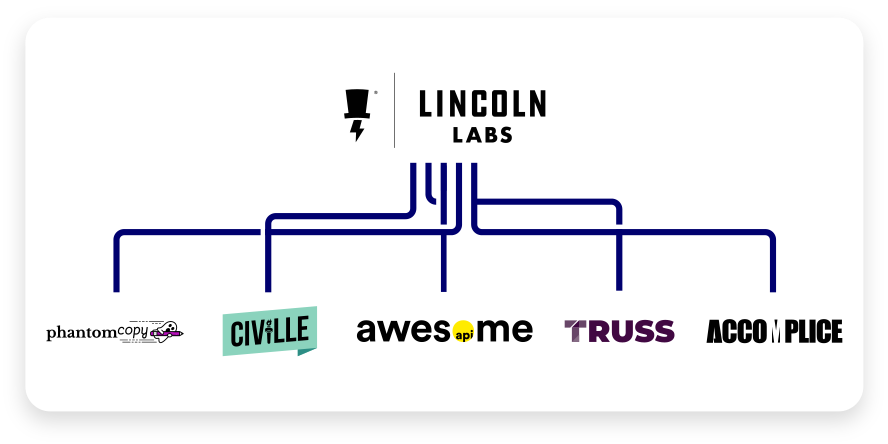
Building a thing is no simple task. You have to know where to start and where to go from there. If you were building a road, you want to begin with who you are connecting with and why, and who should get the first priority. Maybe you are prioritizing based on need or perhaps your prioritization comes down to ease of connection. The people across the river may have a larger need for that road, but the people up the beach have a need too, and we can connect to them in days instead of the months it would take to connect across the water.
These are all things that you have to weigh when building a product, especially a product like a unified API. AwesomeAPI had to decide something fairly early on. Were we creating enterprise software, or were we going to vertically integrate? Let’s look at vertical integration vs enterprise software to see why we chose what we chose.
Difference Between Enterprise Software and Vertical Integration
When you want to connect things together with a unified API there are pretty much two ways you can go. Enterprise software is a solid concept where you connect things across a software sector. Do you need to use more than one accounting software package? Do you have multiple inventory systems that all need to talk to each other?
This is especially useful for businesses that operate in different industries where different standards and software are commonly used between those industries. Imagine an automotive company that also works in aerospace. Their automotive side of the business might use one accounting software because it’s what their vendors use, but the aerospace side may need to use something different for interacting with the government. You still want them to be able to talk to each other to keep your books balanced right?
Read More: The Tools and Software That Make AwesomeAPI Awesome
How Vertical Integration is Different

Truth is, many businesses do not run into the issue of operating in multiple industries. True, they could still benefit from enterprise software, but you know what will take care of them even better? Vertically integrated software. Let’s look at one sector in particular, automotive, especially at the dealership level.
In automotive you have an inventory system, a website, a CRM, third-party website integrations like chat, OEM incentives, and more. Some of this stuff is built to talk to each other already, but not always, and it gets difficult to manage when one auto group wants all their stuff to talk to each other even though they have different providers for different locations.
If you want to be one of these providers, then you have to ensure that you integrate smoothly and easily with all of them. No matter how amazing your software is, it’s going to be a hard sell if you can’t integrate with everything that an auto group needs your software to integrate with.
You have two options then. You can build those integrations yourself, maybe some enterprise integrations can get you at least part way there, or you can try a vertically integrated product like AwesomeAPI.
Vertical Integration Goals of AwesomeAPI
Our goal with AwesomeAPI is to solve that very problem. Automotive is the first sector that we are expanding in with the goal being that you just have to integrate your new automotive software with us once, and you’ll be able to talk to all the products that dealers and auto groups use.
Unified API vs Building Your Own API
Why Automotive?
Automotive in particular suffers from these integration problems more than many other industries for the reasons we already outlined above, but beyond that, we have experience in the field. We know automotive, and we know the pain points that many software providers face.
We are also part of Lincoln Labs. Why does that matter? Well, Lincoln Labs is a tech collective that operates in many industries already. Specifically, with our Phantom Copy brand, we handle marketing primarily for car dealerships. In the future, we plan on expanding into legal, which again circles back to Lincoln Labs specifically with our Civille brand which is a website platform for law firms.

In short though, automotive and legal are just where we are starting. Like we said at the beginning, part of building anything is knowing where to start.